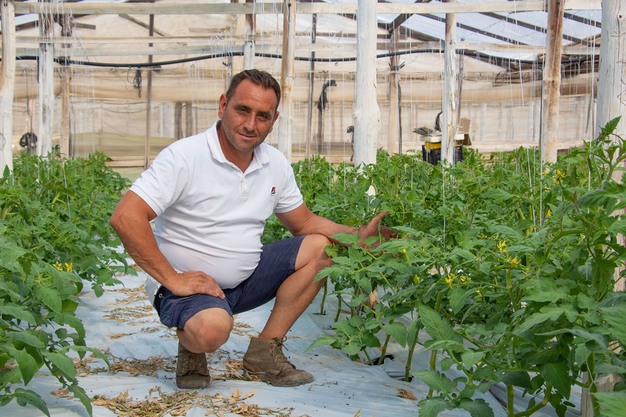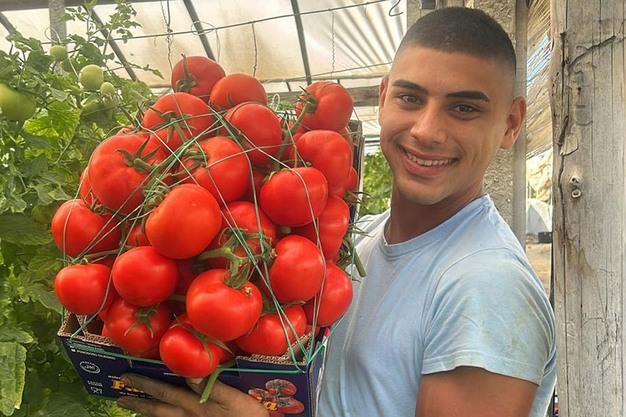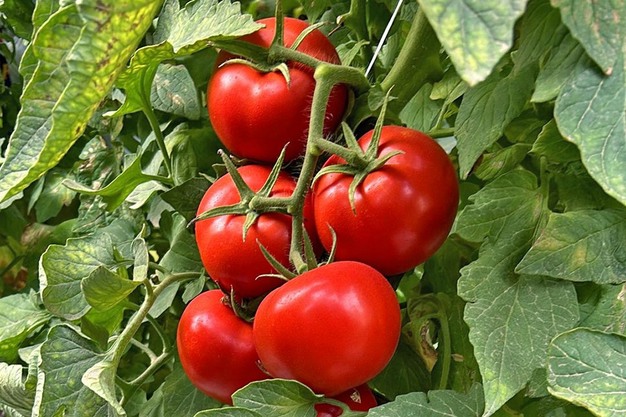For a tomato grower, choosing the right variety can make the difference between a good year and a less profitable one. It is often assumed that only genetic factors influence the decision on which variety or segment to plant, but much depends on the grower's preference.
 Salvatore Ficicchia
Salvatore Ficicchia
Sometimes the choice is also influenced by personal preferences, such as the unavoidable aptitude and adaptability in field management. Salvatore Ficicchia testifies to this when he says: "For me, Carreras is one of those varieties to which a grower feels an almost paternal affection, I feel as if it is a bit like my daughter."
As with all new hybrids, Carreras was introduced at a time when we didn't really know the best time to transplant or how to manage the plant to achieve its full potential," continues the owner of the eponymous farm in Gela, Sicily.
Learning from mistakes
I started transplanting them in a small 1,000m² greenhouse," says Ficicchia. I transplanted them too early and, as you'd expect, the first two cycles were almost impossible to sell. The colour of the fruit was bland, definitely not suitable for the market in our area. It was from the third cycle, and especially from the fourth, when the temperature began to rise, that I saw the Carreras really come into their own. Suddenly, I noticed that the row became a wall of fiery red fruit, on generous clusters of 6-7 grapes, very turgid, which was a spectacle. In just one campaign, Carreras had won the highest praise from those we used to refer to. Not surprisingly, the following year we postponed the planting period and extended it to the beginning of September."
 Gaetano Ficicchia with a box of Carreras F1
Gaetano Ficicchia with a box of Carreras F1
"What really impressed me was the extraordinary response from the markets," says Ficicchia. "Thanks to word of mouth, we received requests for our product from Naples, Fondi, Rimini and Verona. Carreras' production yield, taste and shelf-life allowed us to satisfy an ever-increasing demand. Since then we have not stopped growing this variety."
The impact of ToBRFV
"After a period of decreasing production due to the appearance of the ToBRFV virus, which led us to diversify the production of smooth rounds by also focusing on midi plums, in recent years we have returned to producing mainly smooth rounds in clusters on about 8 hectares, because we have learned to manage and coexist with the virus. Even under medium-high virosis pressure, Carreras, although not genetically resistant, retains colour and production with minimal variation. Honestly, I am happy the way I am," continues Salvatore Ficicchia. "We were born to grow bunches, which is the segment in which we specialise and which allows us to stand out in the market for the quality of the products we offer."
 Carreras F1
Carreras F1
The 2024 campaign: a difficult but successful one
"This year I have to say that the second campaign was a little more difficult than usual," admits Gaetano Ficicchia, Salvatore's son, who is also part of the company. Firstly because of the exceptionally low production prices, and then because of the long period of high temperatures. Despite this, the Carreras variety has performed very well, apart from some difficulties in setting when it was transplanted in mid-June. Thanks to the management of the microclimate in the greenhouse, with ventilation, shade under netting and precise and frequent irrigation, there were no significant physiological disorders or problems related to heat stress. The quality has remained high and the strong demand has helped to compensate for the slightly reduced yields."
"For me, Carreras remains the best variety in its segment," concludes Salvatore Ficicchia, "especially when you learn how to use it. It takes time to get used to it and it always helps to talk to the technicians at the seed company. Last year, for example, we had some problems with shedding; this year we solved them by intervening weekly with a different supply of fast-assimilating nitrogen-free calcium, reducing fertilisation and changing the N/P/K ratio, gradually reducing the phosphorus."
For more information:
Harmoniz Italy Srl ![]()
Giuseppe Busacca:
Tel.: +39 338 344 5650
Andrea Tidona:
Tel.: +39 334 135 2581
Guglielmo Roccasalvo:
Tel.: +39 366 988 7564
